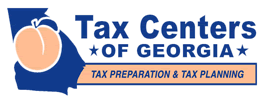Given the uneasiness with the world and the economy, people have been asking more frequently if they should stop contributing to a 401(k).
The short answer is no.
History has shown that those who hang on and keep contributing, even during times of uncertainty, wind up with more money in the long run.
Unfortunately, many people are choosing to stop contributing to a 401(k) or lower the amount they are contributing.
An Empower survey found that 24% of respondents plan to “decrease their 401(k) contributions to free up more money for disposable income.”¹
At the same time, respondents are also genuinely concerned about their future retirement.
According to Empower, “Two-thirds believe the economy will impact their ability to retire (65%).”²
There is a clear connection between stopping contributions to a 401(k) and the ability to retire.
Read on to learn exactly why.
Reasons to Consider Hitting Pause on 401(k) Contributions

Before we discuss some reasons why you should not stop contributing to a 401(k), let’s discuss some reasons why people often consider pausing or stopping contributions.
- High-Interest Debt: Debt can be debilitating and can prevent you from reaching retirement goals. Your debt payments are taking away money you could be contributing to your retirement.
Ultimately, you want to pay down debt AND contribute to your 401(k). To make this happen, if you can contribute enough to get the company match for your 401(k), keep contributing this amount.
This allows you to keep the free money from your employer’s company match. Then, divert any additional retirement savings to paying down debt. Create a budget that prioritizes debt repayment while still allowing you to contribute enough to your 401(k) to receive the full company match.
- Nearing Retirement: It may be worth it to stop contributing to a 401(k) if you are nearing retirement and need to pay off a mortgage. This is typically your largest expense, and it could increase your monthly income in retirement if you aren’t having to pay a mortgage bill.
Fear-Based Actions Today May Come Back to Haunt You

The big issue when people stop contributing to a 401(k) is that they never start contributing again.
In our opinion, this is a crisis.
Retirement costs are rising, and they will most likely continue to rise.
If you are not contributing to a 401(k), you will likely have to push back your retirement date.
If you don’t have enough money to retire, you may have to keep working.
Even if you can retire, you may discover that your retirement is not what you dreamed it would be.
You may have to live a lifestyle that is unpleasant and difficult.
The lesson is that the fear-based actions you take today may come back to haunt you in the future.
Real Cost of Not Contributing

We just discussed the big picture effects for those who stop contributing to a 401(k).
Now, let’s discuss the specifics of what can actually happen.
If you cut back or halt your 401(k) contributions, you may have to push back your retirement date, meaning you’ll most likely have to work longer than you planned.
The reason why is simple.
When you cut back or halt your 401(k) contributions, you lose out on compound return, which is how your savings grow over time.
Let’s say you have $6,000 in your 401(k) and contribute $300 a month. By age 65, you’ll have a balance of $709,000 (with an 8% return).
In contrast, let’s say you lower the monthly contribution to $100 a month. Now, at age 65, you’ll only have a balance of $295,000 (assuming the same 8% return).
That is just lowering your contributions – imagine the impact if you simply stop contributing.
Now, let’s say your company offers an employer match.
In this case, not only do you miss out on the compound return of your contributions, but you also miss out on free money.
This all adds up to a nice chunk of change.
Some companies match 100% up to 6% of your pay.
If you make $40,000 a year and you put in 6% or $2400, the company will match this amount at 100%.
This means you’d get $2,400 per year of free money for your retirement savings to help maximize your 401(k) performance over time.
Another thing to consider is the market.
Many people question whether they should stop contributing to a 401(k) when the market is down.
History has made the answer crystal clear – NO.
In comparison of those who continued to invest even during downturns and those who paused, those who continued to contribute came out on top each time.
A U.S. News report found, “Stocks suffered cumulative losses of about 33% from early 2000 through October 2002. But an investor who started investing $500 per month in March 2000 and kept doing that even throughout the turmoil would have about $700,000 as of March 31, 2025. The ‘wait and see’ investor, on the other hand, would have about $573,000.”³
This pattern has held strong throughout history.
According to the report, “Consistent contributions meant there were more dollars around to benefit when the market rebounded, while hitting pause on contributions meant the opposite. And the impact compounds over time. […] Statistically speaking, the market goes up more than it goes down. Watching a 401(k) lose money isn’t fun to live through, but things eventually turn around.”⁴
Before You Stop Contributing to a 401(k), Consider These Options

We know that times are hard and that it is easy to think about how you could use that “extra” money that you are funneling to a 401(k).
But we urge you to consider other options before you stop contributing to a 401(k).
- Find a Way to Do Both. Build up your emergency savings and save for retirement. Create a budget that allows you to contribute enough to your 401(k) to earn the company match and then use the extra to build up your emergency savings fund.
- Get a Second Job. We live in the age of side hustles. If you need to pay off debt, consider getting a second job that pays down debt, and continue to contribute to your 401(k) from your primary income.
- Have a Solid Catch-Up Plan. Should you feel you have no other choice than to stop contributing to a 401(k) or lowering how much you contribute, have a plan for catching up. Before you stop, think long and hard about how you will catch up to where you need to be to retire.
- Speak to a Financial Advisor. Before you make any changes to how much you contribute (including stopping), speak to a financial advisor. A financial advisor can help you reassess your budget and goals. Speaking with a financial advisor can help you make a plan to stay on track with your 401(k) contributions and give you peace of mind.

